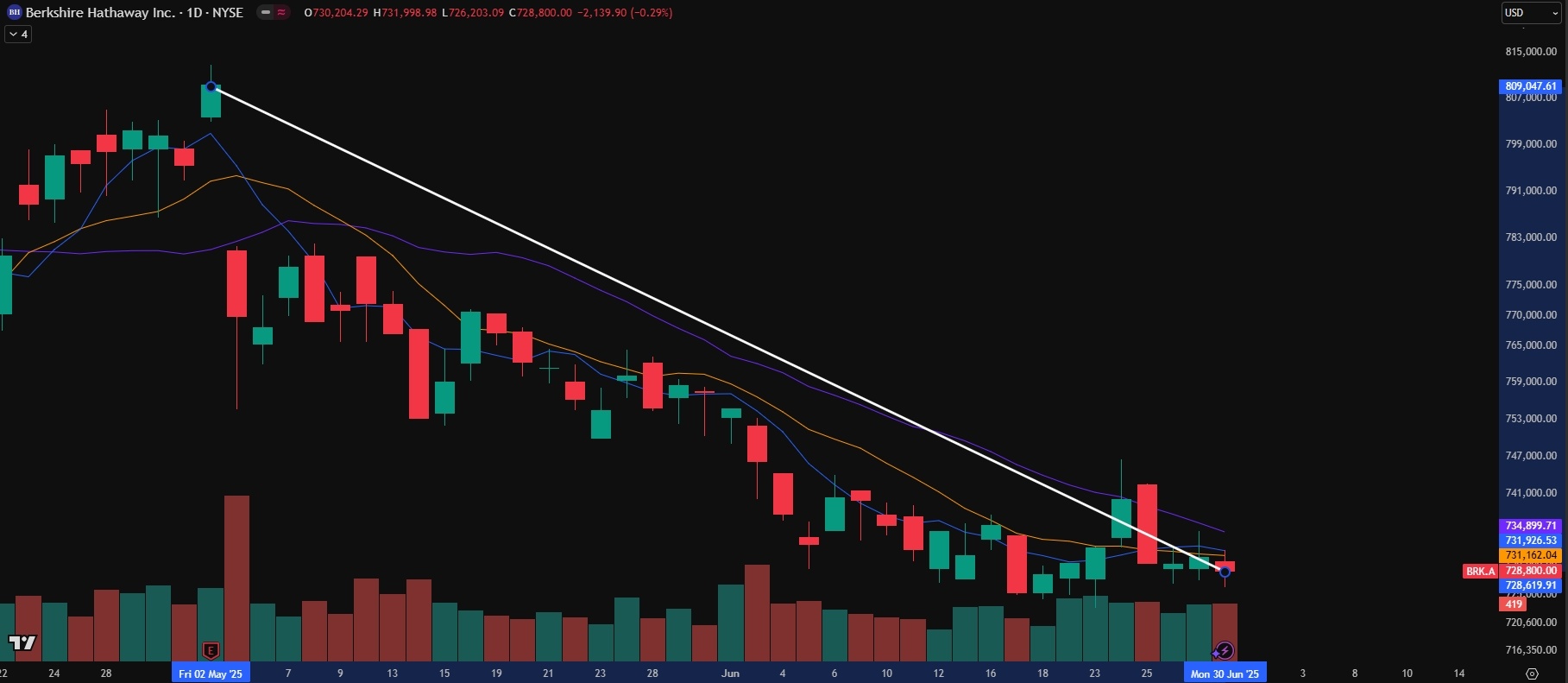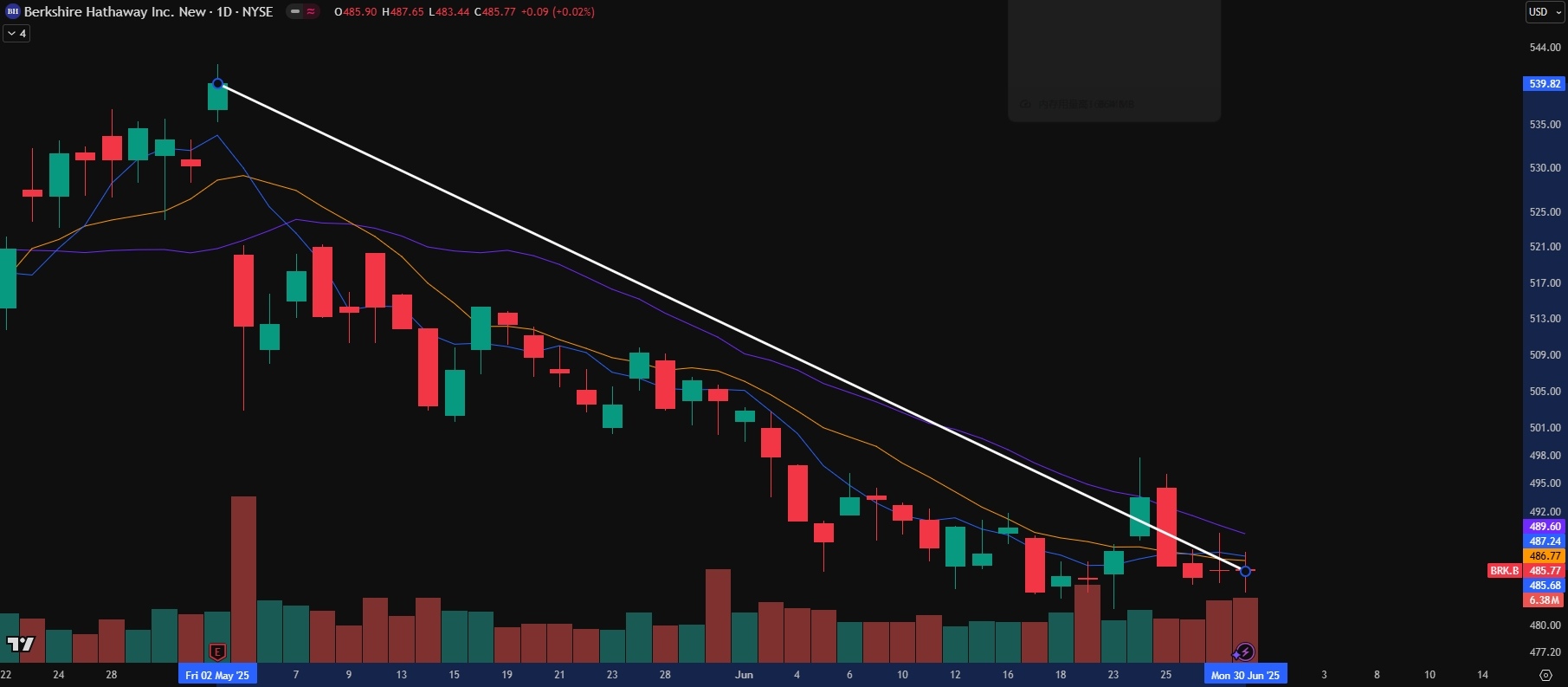“Buffett Premium” Fades as Berkshire’s Q2 Lags Behind S&P 500, Is the Oracle of Omaha’s Legacy in Jeopardy?

TradingKey - Since the second quarter, Berkshire Hathaway’s performance has been disappointing, consistently trailing the S&P 500.
On June 30, the last trading day of the first half, U.S. stocks closed higher across the board, with the S&P 500 rising 0.52% to 6,205 points, setting a new closing high. In contrast, Berkshire’s shares paled in comparison, with Class A shares (BRK.A) falling 0.3% to $728,800, and Class B shares inching up 0.02% to $485.77, both underperforming the S&P 500 on the day.
Since Warren Buffett announced his retirement plans at the annual shareholder meeting on May 3, both Berkshire’s Class A and B shares have declined about 10%, starkly contrasting with the robust recovery of the S&P 500 during the same period.

[Berkshire Stock BRK.A, source: TradingView]

[Berkshire Stock BRK.B, source: TradingView]
Prior to the shareholder meeting, Berkshire was in a strong position this year. On May 2, Class A shares closed at a record $809,350, up approximately 18% from the start of the year, outperforming the S&P 500 by 21 points.
Investors have traditionally been willing to pay a premium for Berkshire shares, thanks to Buffett's reputation and successful investment history. However, analysts indicate that Berkshire’s luster seems to be waning, and the “Buffett premium,” which once made its stock a hot commodity, is declining.
In May, Berkshire’s stock reached about 1.8 times its book value as of March 31, the highest in over a decade, but has since dipped to 1.6 times. This shift suggests a decreased eagerness among investors to pay a premium for the stock.
Kevin Heal, an analyst covering Berkshire at Argus Research, suggests the initial drop in the stock may have been related to the leadership changes, but underlying fundamentals likely played a greater role thereafter.
Berkshire’s latest financial report showed a 14% year-over-year decline in operating profit to $96.41 billion in the first quarter of 2025, encompassing its fully-owned insurance and railroad businesses.
David Kass, a University of Maryland finance professor and long-time Berkshire shareholder, believes the company’s underperformance compared to the broader market may widen further, potentially nearing a 20-point gap.







